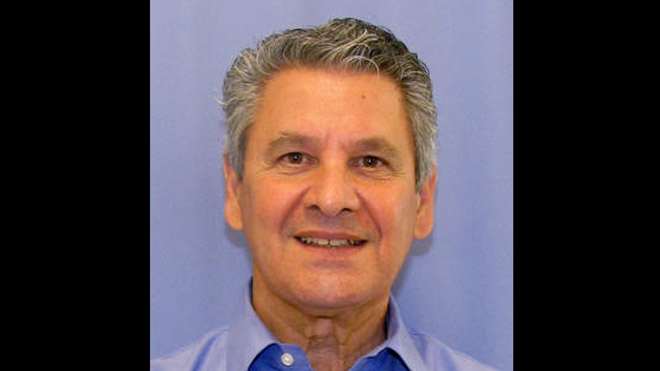PITTSBURGH – A University of Pittsburgh medical researcher accused of poisoning his neurologist wife with a supplement she apparently thought would help them have a baby was arrested on Thursday in West Virginia, authorities said.
Videos By Rare
Dr. Robert Ferrante laced an energy supplement with cyanide and gave it to Dr. Autumn Klein, a neurologist at the university’s medical school, hours after they exchanged text messages about how the supplement could help them conceive, according to a police complaint unsealed Thursday.
“Will it stimulate egg production, too?” Klein, 41, asked about nine hours before she fell ill.
Ferrante, 64, responded with a smiling emoticon.
Police had traveled to St. Augustine, Fla., to look for Ferrante, a leading researcher on Lou Gehrig’s disease, but Allegheny County district attorney’s office spokesman Mike Manko said Ferrante was arrested near Beckley, W.Va., by state police. No other details were released.
A nationwide law enforcement bulletin was issued to be on the lookout for Ferrante “because the defendant is facing a criminal homicide charge and has the financial means to travel anywhere,” Manko said.
Defense attorney William Difenderfer did not immediately respond to a request for comment Thursday night on his client’s arrest and an allegation by authorities Ferrante had been advised to leave Florida.
Difenderfer previously said Ferrante denies involvement in his wife’s death, but he declined to comment further Thursday except to confirm speaking with Ferrante while arranging his arrest.
Klein, chief of women’s neurology at the University of Pittsburgh Medical Center, died April 20 after suddenly falling ill at home three days earlier. Blood drawn from Klein had high levels of acid so doctors had it tested for cyanide as a precaution, even noting it was unlikely, the police complaint said. Those tests revealed a lethal level of cyanide, but only after Klein had died and been cremated at her husband’s insistence, police said.
Two days before Ferrante’s wife fell ill, he used a university credit card to buy more than a half-pound of cyanide, which police determined was the only substance he purchased not related to his work, authorities said.
While the criminal complaint showed Klein may have been trying to get pregnant by Ferrante, he also suspected she was having an affair with a man in Boston, authorities said. That man told police he occasionally met Klein for dinner or drinks and she complained Ferrante was controlling and unsupportive of her job or their daughter.
Within weeks of Klein’s death, police determined Ferrante confronted her three times about whether she was having an affair. Other evidence shows Klein “intended to have a conversation with Ferrante and that Ferrante would not like the discussion,” police said.
Ferrante and Klein met while she was a student and Ferrante worked at the VA hospital in Bedford, Mass. They were married in 2001.
Ferrante worked at Harvard Medical School and Massachusetts General Hospital before moving to Pittsburgh with Klein two years ago to join the university’s neurological surgery team.
The university said Ferrante has been placed on indefinite leave. Ferrante has been denied access to the lab since police started investigating Klein’s death in May.
Cyanide kills by destroying cells. A lethal dose is about 200 milligrams, about 1/25th the weight of a nickel, said John Trestrail, a pharmacist and expert who taught a class on criminal poisoning at the FBI National Academy.

